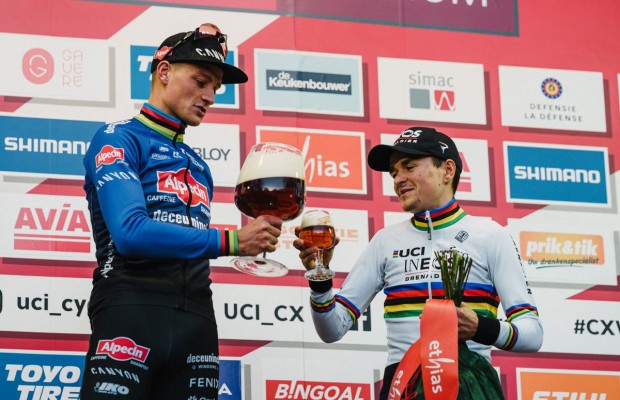Cyclocross needs a plan urgently
The UCI had a roadmap for cyclo-cross, based on the spectacle provided by Mathieu van der Poel and Wout van Aert who, with their duels, have been the great animators of the competition over the last decade. However, the latter are increasingly focused on the road and the World Cup is not as appealing to riders and spectators as they had hoped.

Why is cyclo-cross not catching on globally?
Cyclo-cross, a discipline that for decades has been used by cyclists to maintain their competitive activity during the winter and which in Belgium and the Netherlands has become a real entity of sport, almost a religion, does not seem to have the same impact outside of Belgium and the Netherlands, despite the efforts of the UCI to internationalise the discipline and for the World Cup races to have a good number of spectators wherever they are held.
This growth has been supported over the last decade by the rivalry between Mathieu van der Poel and Wout van Aert, which led many to discover the sport and start following it. However, the UCI, in its quest to make cyclo-cross more widespread, decided to extend the competition. What was once an intense 3 months of racing from November to the end of January has now become a full season that starts in early October and stretches well into February, with a World Cup that spans the whole of that time.
RECOMENDADO

Alcoholic beverages with the fewest calories

What would you do if you won the lottery? This cyclist bought himself a €20,000 bike

Tips for cycling in the rain

25 cycling gifts ideas to get it right

When do helmets have to be changed? Do they have an expiration date?

The best apps for cycling and mountain biking

This means that those who combine road and cyclo-cross often skip the first races of the season and, of course, the last ones, with their minds set on preparing for the spring classics. On the other hand, there are the cyclo-cross specialists for whom the season becomes tremendously long if one takes into account that they have to compete every weekend. This forces them to reserve themselves, especially for the great month of December, the peak of the discipline where it is usual to have races on both days of the weekend and some in the middle of the weekend.
Things are not going as planned for the UCI and this week its president David Lappartient exploded and even threatened not to allow those who do not compete in the World Cup to take part in the World Championships. A competition that, nevertheless, does not even engage the specialists who often ignore the general classification.

In fact, the other two major circuits, the Superprestige and the X2O, especially the former, have a greater appeal for both cyclists and spectators. Circuits that focus on the traditional races in the Netherlands and Belgium, aimed at a loyal and passionate public that fills the circuits to the same level as any top-level football match.
The UCI has hit a stone in its plans in that the big stars have ended up owing more to their road teams than to the mud. Now Van der Poel, Van Aert and Pidcock have all reduced their cyclo-cross participation to a minimum, going to the races for which they receive the most cache and which, many of them, are not World Cup races, which has obviously upset cycling's highest body.
All this leads to the question of whether the internationalisation of cycling beyond its roots in the Netherlands and Belgium is a good idea or whether the calendar should be redesigned to avoid extending the season so much and make it more attractive to cyclists, especially those from other disciplines.

It is difficult to understand how cyclo-cross has not taken off outside the Benelux. It is an intense discipline, requiring only an hour of spectator attention, very easy for television broadcasters to broadcast as it is held on a relatively short circuit and is great fun to watch in situ with riders constantly passing by and the possibility of seeing several points. But the reality is what it is and although World Cup races are very well attended, outside of the World Cup it is a totally minority sport.
Undoubtedly, if the UCI wants cyclo-cross to take off outside its traditional strongholds, it will have to try something else and, above all, base its plan on enhancing the value of the sport itself and not having to depend on the presence or absence of great riders. Starting with a more rational calendar that allows multidisciplinary cyclists to take part in this discipline without being forced to compromise their main objectives.